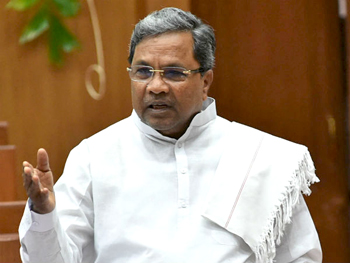We, the undersigned express our solidarity with Dr Zafarul Islam Khan, renowned scholar, journalist and presently Chairman of the Delhi Minorities Commission.
We strongly condemn the continued media trial and targeting of Dr Zafarul Islam Khan for his Facebook post thanking Kuwait for expressing solidarity with Indian Muslims. In his Facebook post, he mentioned the appalling deterioration of human rights of Indian Muslims who have been targeted by Hindutva bigots. A few politicians with ulterior motives and news channel anchors known for spreading bigotry and Islamophobia have mischievously sought to misinterpret his statement and ridiculously label him as anti-Hindu and anti-India.
He has only reiterated what many citizens of India, public figures, international institutions, various European governments, the United States of America and United Nations human rights mechanisms have repeatedly underlined their concern at the increasing human rights abuse and violations of religious minorities in India.
Dr Zafarul Islam Khan is a man of integrity. He is a scholar who is known to stand up for constitutional freedoms and values.
His work as the Chairman of Delhi Minorities Commission has been warmly applauded by human rights activists and NGOs across different faiths. His timely interventions on problems of minorities in Delhi have made him a respectable figure among not only Muslims but Sikh, Christians, Jains and Parsis. He is a humanist in the truest sense of the word.
The hateful propaganda against Dr Khan is one more illustration as how certain Indians fail to differentiate between Hinduism, a religion and Hindutva which is a supremacist political ideology.
Dr Zafarul Islam Khan is a leading Indian intellectual whose niche area is Islamic studies and Arab world. He enjoys great respect in the Arab and Muslim world for his understanding and knowledge. He is an alumni of the esteemed Jamia Al-Azhar and Manchester University.
Dr Khan is known for taking bold public positions. He was the first Muslim scholar in the world who denounced ISIL, which later became IS or ISIS. He issued a statement opposing the barbaric crimes of ISIL (IS or ISIS) and Boko Haram against minorities. He takes strong stands against extremism of all sorts. That makes him a prominent critic of RSS.
Dr Khan is a scholar ambassador and earned international prestige for the India. Any attack and targeting of him, is actually an insult to Indian constitution and ethos.
We demand the appropriate authorities of the Government of India take strong legal action against those who are distorting Dr Khan’s Facebook post, and spreading vicious false propaganda against him.
Signed by:
Swami Agnivesh
Mohammad Adeeb
Arun Kumar (Prof)
Zafar Jung
Kamal Faruqui
Annie Namala
Kavita Krishnan
Subhash Gatade
Jawed Naqvi
Indu Pratap Singh
Avinash Kumar
Iftikhar Gilani
Anil Chamadia
Xavier Dias
Denzil Fernandes (Dr)
Irfan Engineer
Faisal Khan
John Dayal (Dr)
Mujtaba Farooque
Ravi Nair
Abubakr Sabbaq (Adv)
Gopal Menon
Bilal Khan
Ashok Choudhury
Jaffer Latief Najar
Mujahid Nafis
Aseem Sundan
Poojan Sahil
Ankur Otto
Mariya Salim
Tanweer Alam
Juned Khan
E M Abdul Rahiman
Aditi Dutta
Devika Prasad
Ameeque Jamei
Suhaib Ansari
Gurminder Singh
A C Michael
Neelima Sharma
Aftab Alam (Dr)
Dhruva Narayan
Syed Saif Ur Rahman
Tanweer Fazal (Dr)
Thouseef Madikeri (Dr)
N.D. Jayaprakash
Salahuddin Ansari
Satyajeet Nambiar
Suhail KK
Abu Sufiyan
Sujata Madhok
Tariq Khan
Violin Mathew Benjamin
Shamsul Islam (Prof)
Sreedhar Ramamurthi
Mohd. Shahid (Prof)
Anand Vivek Taneja (Dr)
Kush Kumar Singh (Dr)
Mangla Verma
Vipul Kumar
Waquar Hasan
Braham Prakash
Abdul Rashid Agwan
Fawaz Shaheen
Guman Singh
Mohammed Hafeez Ulla
Kp Sasi
Mushfique Raza Khan
Partha S Banerjee
Gautam Majumdar
S.Q. Masood
Aiman J Khan
M. K. Faizy
Tasleem Rehmani (Dr)
Mohammed Shafi
Lenin Raghuvanshi (Dr)
Malik Motasim Khan
Kripal Singh Mandloi
Labeed Shafi
Qamar Intakhab
Raees Ahmed Siddiqui
Laeeq Ahmed Khan
Anthony Arulraj
Sadiq Zafar
Biju Gopidasan
George Pulikuthiyil
Mohd Abdullah
Mohd Sorab Hussain
Mukunda Kattel
Sandeep Pendse
Paul Newman
Ovais Sultan Khan
 Taking a swipe at Modi for failing to bring back black money and for implementing demonetisation, Siddaramaiah termed the Modi government the most corrupt one. “Demonetisation is a big failure. More than 100 people have died trying to withdraw their own money standing in queues (in front of banks). Congress will launch a massive movement against demonetisation,” he said.
Taking a swipe at Modi for failing to bring back black money and for implementing demonetisation, Siddaramaiah termed the Modi government the most corrupt one. “Demonetisation is a big failure. More than 100 people have died trying to withdraw their own money standing in queues (in front of banks). Congress will launch a massive movement against demonetisation,” he said.



Comments
Do not call Note bandi as a failure .. It is required to check the bloody corrupt politicians .....Instead of talking in the air collect the information on black money of Modi or BJP leaders and pass it on IT officials , and make it public...
It is impotent Cong which brought Modi to such a position .... You reap what you sow.....If your previous cong govts were quick to take actions against the goondas of sangh Parivar in earlier days, we would not have seen such days ..... NO USE OF CRYING ON SPLIT MILK ....
hobalt watch yellintu siddu, ninu corrupt alva?
Add new comment